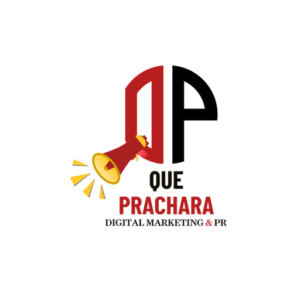Digital Marketing and Social Media Marketing for Business Owners
In today’s hyperconnected world, digital marketing and social media marketing are no longer optional — they are essential. Whether you are a small business owner, a startup founder, or managing a growing enterprise, leveraging online marketing can make or break your success.
Customers no longer discover businesses just through word of mouth. Instead, they Google, scroll through Instagram, and watch YouTube videos before deciding to buy. That’s why digital marketing and social media marketing help businesses attract, engage, and convert customers more effectively than traditional methods.
This article is designed as a complete guide for business owners who want to use digital and social media marketing to grow sustainably.

What is Digital Marketing?
Digital marketing refers to all marketing efforts carried out through digital channels like websites, search engines, social media, and email. It includes strategies such as:
Search Engine Optimization (SEO)
Pay-Per-Click (PPC) Advertising
Email Marketing
Content Marketing
Influencer Collaborations
Video & Mobile Marketing
The goal is to reach the right audience, at the right time, with the right message.
What is Social Media Marketing?
Social media marketing (SMM) is a subset of digital marketing that focuses on platforms like Facebook, Instagram, LinkedIn, TikTok, and Twitter (X).
It involves:
Building brand awareness
Engaging with followers
Running ads for specific audiences
Driving website traffic and sales
Social media marketing works because it allows two-way communication between businesses and customers, making it easier to build relationships and brand trust.
Why Business Owners Can’t Ignore Digital Marketing
As a business owner, your competitors are already investing in digital marketing. Ignoring it can result in lost market share.
Key reasons include:
Cost-effective compared to TV, radio, and print ads.
Targeted marketing with data-driven precision.
Measurable ROI using analytics tools.
Scalable growth regardless of business size.
In short, digital marketing ensures your brand stays visible in a crowded marketplace.
Key Benefits of Social Media Marketing
Social media isn’t just for posting selfies or memes — it’s a powerful business tool.
Brand Awareness – Reach thousands without traditional ad costs.
Customer Engagement – Interact directly through comments, polls, and stories.
Lead Generation – Collect emails, inquiries, and conversions through ads.
Trust & Loyalty – Regular updates build credibility.
Market Insights – Analytics show what customers want.
Top Digital Marketing Strategies for Business Owners
SEO (Search Engine Optimization)
SEO ensures your website ranks higher on Google searches. For example, when someone searches best bakery in Bengaluru, you want your bakery to appear first.
Key SEO tactics:
Optimizing titles, descriptions, and images.
Writing blogs targeting customer pain points.
Local SEO with Google Business Profile.
Content Marketing
“Content is king.” High-quality blogs, videos, reels, and guides help attract organic traffic. Business owners can position themselves as thought leaders by consistently publishing helpful content.
PPC Advertising
Pay-Per-Click ads (Google Ads, Meta Ads) help you reach customers quickly. With budget control and targeting options, PPC is perfect for business owners who need faster results.
Email Marketing
Still one of the highest ROI channels, email builds direct communication with customers. Sending newsletters, discount offers, and updates keeps your audience engaged.
Choosing the Right Social Media Platforms
Not every business needs to be everywhere. Instead, choose platforms where your target audience spends the most time.
Facebook – Broad audience, great for local businesses.
Instagram – Visual storytelling, reels, influencers.
LinkedIn – Ideal for B2B services and networking.
- YouTube – Long-form and educational video marketing.
Content Strategy for Business Growth
A content strategy helps you stay consistent.
Build a content calendar (weekly posts, monthly campaigns).
Mix content formats: blogs, reels, carousels, podcasts.
Repurpose one piece of content across platforms.
Use storytelling to connect emotionally with customers.
Paid Ads vs Organic Reach
Organic Marketing: Free, builds long-term trust, but takes time.
Paid Ads: Quick results, laser-targeting, but costs money.
The smartest approach is blending both. Use paid ads for faster traction while growing your organic audience for sustainable growth.
Measuring ROI in Digital Marketing
As a business owner, you must track ROI. Tools like Google Analytics, SEMrush, and Meta Ads Manager show whether campaigns are working.
Key metrics include:
Website traffic
Cost per lead (CPL)
Return on Ad Spend (ROAS)
Engagement rates
Common Mistakes Business Owners Make
Posting without a strategy.
Ignoring analytics.
Copying competitors blindly.
Spreading budget too thin across platforms.
Neglecting mobile-friendly designs.
Future Trends in Digital & Social Media Marketing
Looking ahead, business owners should prepare for:
AI and Automation – Smarter chatbots, predictive analytics.
Voice Search Optimization – More customers using Alexa/Google Assistant.
Personalization – Hyper-targeted ads.
Short-Form Video Dominance – Reels, Shorts, TikTok continue to grow.
Data Privacy Regulations – Transparency is key.
Digital marketing and social media marketing are no longer optional — they’re survival tools for modern business owners.
By understanding key strategies, choosing the right platforms, and tracking ROI, businesses can stay competitive and grow faster. Start small, measure results, and scale with confidence.
If you’re ready to take the next step, explore services like SEO optimization, paid ads, and content creation tailored to your business needs.
FAQs
1. What is the difference between digital marketing and social media marketing?
Digital marketing is a broader term including SEO, PPC, email, and social strategies. Social media marketing focuses only on platforms like Facebook and Instagram. Together, they complement each other.
2. Which social media platform works best for business owners?
Facebook and Instagram are best for B2C, LinkedIn for B2B, and TikTok for young audiences. Choose based on where your target customers spend time.
3. Is digital marketing expensive for small businesses?
Not necessarily. Digital marketing is scalable — you can start with a small budget for ads or free strategies like SEO and grow gradually.
4. How can I measure digital marketing success?
Track KPIs such as traffic, leads, engagement, and conversions using analytics tools. ROI can be calculated by comparing marketing costs with sales revenue.
5. What trends will shape the future of digital marketing?
AI-driven personalization, short-form videos, and voice search optimization are the most impactful trends business owners should watch.

